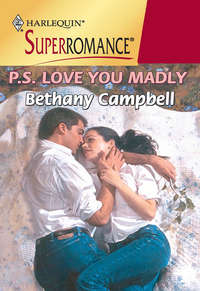
Полная версия
A Little Town In Texas
What would she do if she had a Saturday all to herself? A whole day to do anything she wanted? She leaned her elbows on the windowsill, giving herself up to this sinful fantasy. For starters, there were books to be read, tempting stacks of them, seductive heaps of them…
The crash of shattering glass hurtled her back to reality. Nora straightened, squaring her shoulders. She was training a new waitress, LaVonda Pollack. “Vonnie?” she called apprehensively.
The girl’s voice, nervous, came from the kitchen. “It was only an empty bottle. I’m cleaning it up. Sorry.”
“It’s all right. Don’t worry.” Nora sighed and pushed a hand through her ash-brown hair. Then she busied herself readying for the lunch hour rush. She had tables to wipe, fresh place mats to put down, condiments to restock.
Nora’s regular assistant, Kasey, was on vacation. Her other waitress, Shelby, had just gotten married, and Nora had been lucky to get a replacement—even if it was Vonnie.
Finding good, steady help for the café was hard. The hours were long, the pay only adequate, and the waitresses had to count on tips to make a decent living. Nora missed Shelby, and she envied her. Shelby had gone back to college for her master’s degree.
Sometimes in her heart of hearts, Nora still wished for life without the Longhorn. But the place was hers, and she was lucky to have it. Once the café had almost sold, but the deal had gone sour at the last moment, and Nora took that as a sign. It belonged to her and she belonged to it. There was no escaping and no use complaining.
The door opened, its bell jingling, and her vague discontent fled. When she saw who entered, her heart flew up in happiness.
Three tall men stood in the entryway. All wore Stetsons, western-cut shirts, jeans and expensive boots. Each was handsome, but in a different way. It was J. T. McKinney with both his sons, not only Tyler—but Cal.
The sight of Cal dizzied her with happiness. He and his family had been gone for months. She threw herself into Cal’s arms, half-laughing, half-crying, hugging and being hugged. Cal laughed out loud, Tyler gave a tight smile, and J.T. sighed as if in resignation.
“Cal,” she said in disbelief. “When did you get back?”
“This mornin’,” he said and whirled her around. Then he stopped and beamed the smile that showed his killer dimples. “Lord, is it possible? You’re prettier than ever. Got a kiss for me, sweet thing?”
Then he was bending, his lips firm and affectionate against her cheek. “Mmmwha!” he said, drawing back slightly.
She drank him in. Next to her husband and son, she loved Cal McKinney more than anyone else in the world.
He was as irresistible as ever, his hazel eyes just as full of high spirits. He had his hat brim tipped at a cocky angle, and though he was in his thirties now, he still had his boyish, sexy, carefree air.
He grinned again. “That worthless husband of yours has gone off and left you alone today, the fool?”
Nora hooked her arms around his neck. Her husband, Ken, was J.T.’s foreman and Cal’s best friend. “Ken’s in Medina. He should be back by tonight. Oh, Cal—it’s so good to have you home.”
“Good to be home. Mighty good.”
“And the rest of the family?” she asked. “They’re here?”
“Serena and the twins? Couldn’t go nowhere without ’em, could I? They’re sleeping at Daddy’s. It was a long trip. I hope those twins sleep a week. Ever been on a plane thirty-six hours with twins? Close to hell as I ever want to get.”
She laughed and led him to the nearest booth. “Let me get you some coffee. Or are you too wired?”
“Never too wired for your coffee, darlin’. Or your cheesecake. I’ve been thinkin’ of your cheesecake for the last three thousand miles. It was all that kept my spirits up. You got pumpkin?”
“I do. The first of the season. You want it with whipped cream?”
Cal closed his eyes in mock ecstasy. “Yes. Say it again. It’s like you’re talkin’ dirty.”
She gave him a playful swat. She turned to Cal’s father. “And what can I get you, J.T.?”
“I wondered if you were ever going to notice me,” J.T. drawled.
Nora laughed. “I always notice you. You’re not an easy man to ignore.”
“Except when he’s around,” J.T. said with a rueful nod at Cal.
Cal looked amused, but his brother, Tyler, didn’t smile.
J.T. said, “Give me black coffee with no caffeine and a piece of gingerbread. But no whipped cream.”
Cal patted his father’s chest over the heart. “Gotta take good care of that ticker, Daddy.”
“I learned that the hard way,” J.T. said, pushing the sugar bowl farther away. Almost ten years ago he’d had a major heart attack.
“And you,” Nora said to Tyler, “you’ll have black coffee, skim milk on the side and a plain donut.”
Tyler nodded.
“You still have that same thing?” Cal asked in disbelief.
“Yep,” said Tyler.
“You don’t ever change it?”
“Nope,” said Tyler.
“God,” Cal said, shaking his head. “You’re so predictable.”
Tyler gave him a level look. “So in your way,” he said, “are you.”
“Ah,” said J.T. “The sound of quibbling. How I’ve missed it. Family’s a wonderful thing. Isn’t it, Nora?”
“The best,” she said. She looked at the three of them fondly.
J. T. McKinney owned the biggest ranch in the county. He was in his early sixties now, but still straight and tall. His thick hair was silver, and although time had carved lines in his face, women said he was as handsome as ever—and some said he was even more so.
Tyler, the black-haired elder son, resembled his father, with the same dark eyes and stubborn jaw. Nora knew that he was a good man, but his feelings often ran too deep and silently for his own good.
And Cal—unlikely as it was, Cal was now a golden boy. Tyler had graduated from college with honors. Cal had been kicked out with multiple dishonors. Like a dutiful son, Tyler went back to the Double C to work with his father. Cal hit the rodeo circuit and spent the next ten years raising merry hell without wasting a thought on responsibility.
Then Tyler had a brainchild. He studied hard and toiled even harder to turn almost a thousand acres of Double C land into a vineyard and establish a winery. He did everything by the book, with science and forethought.
Cal fell into business only because he fell in love. He was surprised to find he had a knack for making deals. He’d turned Serena’s small boot-making business into a big one, then diversified. He invested, and his investments multiplied.
Now Tyler was still struggling to make his winery one of the best in the state. His wife had left him once, and he’d almost let her get away. The last ten years had often been rocky for him. In contrast, Cal was rich, with a marriage smooth as silk. Who could have predicted such a thing?
There were tensions among the three men. Nora could see it even now, when they should be happy in their reunion. Still, for all the undercurrents that ran among the men, they were bound together by ties of blood. If anyone was foolish enough to take on one McKinney man, he took on all three.
They had their differences. They always would. But to Nora, these three men weren’t simply from Crystal Creek. They were Crystal Creek, its generous and complex heart and soul.
CHAPTER TWO
MEL BELYLE RACED like hell through the Dallas airport. He dodged, he wove, he sprinted. The crowd in the concourse formed a slow-moving human maze, but he negotiated it with a keen eye and his fanciest footwork.
It didn’t matter. He still missed his flight to Austin.
He turned around in disgust and bumped—hard—into the little redhead. She’d been on the same flight as he had from New York. How in blazes had she got there so fast? Did she have wings on her heels?
He blinked in surprise. She didn’t. “Excuse you,” she said, her voice full of irony.
Hmm, he thought. Attitude. Lots of it. “Sorry,” he said. “I didn’t see you clear down there.”
Blue sparks flashed in her eyes. She tossed a disdainful glance at his expensive shoes. “I hope you didn’t scuff your Guccis on my shin.”
He raised an eyebrow. “I said I was sorry.”
“Right,” she said, “Forget it.” She hustled past him and made her way to the ticket counter. “I missed my connection to Austin,” she said to the attendant. “When’s the next flight?”
Austin? he thought. It’s a small world after all.
Mel looked her up and down. Her long hair was red as flame and pulled back into a loose ponytail. Her face would have looked almost elfin, except the eyes were a-crackle with worldly intelligence.
She wore jeans, running shoes and a travel vest, and she had the air of knowing exactly what she was doing. She was breathing hard, but he was breathing harder.
He stepped up behind her. He was almost a foot taller than she was.
He said, “You were on the flight from New York.”
She didn’t bother to look at him. “Yes.”
“You’re going to Austin, too?”
“Yes,” she said in a tone that meant Stop talking to me.
He wasn’t about to stop. She rather intrigued him. She was the sort of little thing who thought she was a big deal, and he was just the man to bring her down a notch or two.
But he made his voice friendly, casual. “You must have got here right behind me. I thought everybody was eating my dust.”
She cast him the briefest glance over her shoulder. “I got here before you. You ate my dust.”
He laughed at her audacity. “I’m afraid you’re mistaken. I was on my college track team.”
This time her glance was longer and more dismissive. “So was I. I was the captain.”
Again she turned her back on him. He looked dubiously at her. She was breathing almost normally now, but his heartbeat still labored, his lungs still burned.
She was built like a runner, he conceded, even if she was small. Her legs were long for her height, and she didn’t carry an ounce of fat. While he’d searched for openings in the crowd big enough to get through, she’d probably dashed through like a rabbit through the forest.
How annoying. And she was apparently in better shape than he was. More annoying still. She probably ran ten miles a day, ate bean sprouts and drank only bottled water.
The attendant said to the redhead, “I’m sorry. There won’t be another flight for at least two hours.”
Mel heard the redhead mumble something under her breath. Then she said, “Is there a place around here to sit down and eat?”
“Up the escalator,” said the attendant. “Then just keep going straight.”
The redhead sighed and made her way toward the rest room, shouldering her carry-ons again. During her run, her hair had come partly undone. It hung down in tendrils along the nape of her neck and over her ears.
That neck was pale and slightly moist with perspiration. Mel wondered if her whole body was as flawless and damp as that ivory neck. He watched her disappear into the ladies’ room, moving smoothly.
Two hours is a long time, he thought. An enterprising man could make things happen.
He made his arrangements for the next flight, then waited until he saw the redhead emerge from the rest room. Her hair was brushed neatly into place, and she’d added a touch of coral lipstick to that smart mouth of hers.
He watched her get on the escalator, waited until she was halfway up, then followed. A few people had got on between them. Once at the top he was surprised how quickly he had to move to keep up with her. Damn! She was fast, dodging in and out of the crowd as lithely as a cat.
It was a quarter past noon now, and the restaurants lining the concourse were packed. He saw her scan first one, then another, looking for an opening. She never broke stride until she saw one.
A harried-looking couple was leaving a tiny table at a bar and grill. The redhead spotted them before Mel did and veered into the restaurant without even a pause. As soon as the man stood up, she gave him a friendly smile and sat down in his place.
Perfect, Mel thought with satisfaction. I’ve lived right. He quickened his pace, strode into the restaurant and sat down across from her, beating out a beefy guy with a briefcase by a split second. “Mind if I join you?” Mel asked her cheerfully. “There doesn’t seem to be another place.”
She looked at him with suspicion. The place was crowded to overflowing; she could hardly object. She shrugged the way one might shrug off a pesky fly.
Then she dug into her carry-on and pulled out a thick paperback book. The cover said Guidebook to the Texas Hill Country and bore a photograph of a myopic-looking armadillo. She opened it and began reading, ignoring him.
Mel Belyle did not easily suffer being ignored, but he never begged for attention, either. He didn’t have to. He reached into his own carry-on and took out a book identical to hers, with the same beady-eyed armadillo. He opened it and pretended to read.
He saw her double take and pretended he didn’t. He was aware the restaurant was overcrowded and understaffed. They could be at this table a nice, long time.
He’d noticed her back in New York, of course—he took note of all pretty girls. But he’d dismissed her: not his type. He liked his women tall and languid, not small and brisk.
Still, he’d noticed her again when he was sitting in first class, sipping a Bloody Mary. She boarded afterward, with the coach passengers, expertly shouldering her well-worn bags.
He hadn’t been able not to watch her, but she hadn’t cast so much as a glance his way. She seemed to have her mind strictly on business even though she wasn’t dressed for it. She must not give a hoot for fashion. He liked his women fashionable.
“You’re as bad as Fabian with his supermodels,” his brother Nick had once taunted. “That last girl you took out looked like a giraffe in rhinestones.”
The memory fell over Mel coldly, like a drop in the temperature. That was one of the last conversations he’d had with Nicky. They hadn’t spoken since May.
The break wasn’t over Nick’s crack about the girl. Nick always teased, and about the model, he’d been right. She had looked like a giraffe, albeit an elegant one.
No, the rupture was over what Nick had done to Fabian. It was beyond ungrateful. It was treacherous, a betrayal too deep for Mel to forgive. He intended to settle the score, and if people wanted to call it revenge, let them. To Mel, it was justice. Nobody had more right to exact it than he did.
Yet in truth, he didn’t like dwelling on it. He supposed that he’d loved Nick once, but now his brother was his enemy. It gave him a cold and hollow feeling in his gut, and he wanted distraction. He would distract himself with the redhead.
A roly-poly waiter in a striped vest appeared. “Afternoon, folks,” he said. “Can I take a drink order?”
“Just a cola,” said the redhead, barely looking up from her book. “And could I get half a turkey and Swiss cheese sandwich?”
“Well…” said the waiter, sounding perplexed.
“The same for me,” Mel said quickly.
“Oh,” the waiter said, his round face relaxing. “I see. Split it? Cola’s cheaper by the pitcher.”
“That’ll be fine,” Mel nodded. “Bring a pitcher.”
The redhead glanced up sharply. “Those are separate orders,” she said, but the waiter had already disappeared into the crowd.
Mel gave her an innocent smile. “Don’t worry about it.” He nodded at their twin books. “Coincidence, eh?”
Her blue eyes seemed to say What’s with you? Her mouth, which was a very nice mouth indeed, said nothing.
He reached into his pocket and laid his card before her, in front of the napkin dispenser. “My name’s Mel Belyle,” he said. “Since we’re sharing a table and a flight, we might as well be friendly. I’m sorry about bumping into you like that. Sincerely.”
Her gaze fell to his card, and he saw her skeptical expression change. For a split second she was very still, and he studied her. She had a piquant little face, hardly beautiful, but arresting. She raised her eyes to meet his again. Her lashes were long, thick, and auburn.
For the first time she smiled. “Hello, Mel Belyle,” she said. “My name’s Kitt Mitchell.”
She stretched out her hand in greeting. He shook it, enjoying the silky feel of her skin. He didn’t marvel at the transformation of her mood, he simply congratulated himself. He guessed his charm was working, after all.
OH, THIS IS RICH, thought Kitt.
It was like the fly catching the spider. She recognized the name on the card and she recognized the firm he represented.
Melburn K. Belyle, Corporate Attorney
Castle Enterprises, Inc.
New York
Castle Enterprises was the corporation Fabian had created expressly to handle the Bluebonnet Meadows project in Crystal Creek. And Mel Belyle was the man Heywood Cronin had sworn would never speak to Kitt.
Yet here, in all his egotistical glory, was Mr. Belyle himself, trying to pick her up. She put her elbows on the table, laced her fingers together, and gave him her most admiring stare. She batted her eyelashes ever so slightly.
She pretended to be mildly flirting, but her practiced eye was taking his measure. He was actually an exceptionally good-looking man. Too tall for her taste, of course, but well built.
His hair was medium brown, thick and waving. Beneath straight, dark brows, his eyes were sapphire blue. He had a straight nose, a well-shaped mouth, and a square jaw.
He carried himself with confidence—too much for Kitt’s taste. And, clearly, he had money. His blue sweater looked like cashmere, and its color matched his eyes. The dark slacks fit perfectly. His nails were manicured better than hers, and his haircut was more expensive.
She imagined him living at his elegant address, riding in limousines, dating those women whose pictures appeared in glossy magazine ads. His roots might have been humble, but nobody would ever guess. Maybe that was the point.
She began to sound him out. “Okay,” she said with a demure smile. “We’ve made peace. So tell me about yourself. What takes you to Austin?”
“Business,” he said. “What about you?”
“I’m going to visit my aunt,” she said, which wasn’t a lie. She paused for effect. “I haven’t seen her in ages. It’s a shame to be out of touch with family, don’t you think?”
For a split second, almost imperceptibly, his smile wavered. He didn’t answer her question. Instead he said, “So you’re from Texas?”
“A long time ago,” said Kitt. “I’m permanently transplanted to Manhattan now. What about you? Native New Yorker?”
“Transplant,” he said. “I’m from Beaumont, originally.”
She knew that already. “Castle Enterprises,” she said. “That sounds familiar. What exactly is it?”
“Real estate development,” he said, then turned the questioning. “And what do you do?”
She shrugged as if her job was of small interest. “I work for the Gilroy Group.” This was misleading, she knew. The Gilroy Group owned six magazines, but it was far more famous for its other holdings, especially its television network.
His blue eyes kindled with mischief. “Gilroy? Are you connected with that Uptown Girls show? The sexy one?”
“I’m just a little-bitty cog in the Gilroy machine,” she said flirtatiously.
He gave her a one-cornered grin. “That means yes, doesn’t it?”
She gave a laugh meant to sound self-conscious. “Well…”
“It does mean yes,” he said with satisfaction and leaned closer. “So exactly what do you do?”
She chose her words carefully. “Well, I guess you say I sort of—work around the editorial office.”
His grin grew more wicked. “You mean like—a story editor?”
“Um. Kind of.” She did, after all, work on stories. He just didn’t suspect she was working on one right now and he was its central figure.
“So tell me,” he said, leaning his chin on his hand. “Those plots? Are they based on real experience?”
He looked as happy as a man who has just fallen into a hutch of Playboy bunnies. Uptown Girls was the sexiest show on network television.
You lech, Kitt thought. I bet you think I’m an encyclopedia of erotica. She batted her lashes again. “That would be telling. I’m not going to discuss it until I know you much, much better.”
He leaned closer still. “That can be instantly arranged. What do you want to know?” His dark blue eyes were fixed with happy predation on hers. For a moment her breath stuck in her chest.
“Everything,” she said. “Tell me simply everything.”
“NO!” CAL CRIED as if in mortal pain. “She can’t do that!”
J.T. sat at his desk. In his face, harshness mingled with resignation. “She can and she is.”
“No,” Cal repeated, then swore. “She’s lived here since I was born. Since before I was born. Hell, she’s family—she can’t up and leave.”
“I’m no happier than you are,” J.T. said. In truth, he felt as if somebody had chipped a piece out of his heart.
“Hell,” Cal said in frustration. He jammed his hands into the pockets of his jeans and stared moodily out the window of J.T.’s study.
J.T. gave a gruff sigh. Lettie Mae Reese, the cook, had given her notice this morning. In two weeks she would celebrate her sixty-second birthday. When she’d told him that she meant to retire, tears had brimmed in her eyes.
J.T. picked up a pencil and threw it down again. Hell, when she’d told him, tears had brimmed in his eyes. Lettie Mae had come to work at the Double C when J.T. had married his first wife, Pauline, years ago.
He could not recall a major holiday or birthday without Lettie. He could picture her when she first came to the Double C, a young black woman so thin that her smile seemed wider than she did.
When Pauline had died, the only person who’d seen him cry was Lettie Mae. He’d stood in the kitchen and suddenly burst into sobs, making a noise like an animal in hopeless pain. She’d embraced him and held him fast, until he could stop. His outburst had been brief but violent, and afterward neither of them ever spoke of it.
Lettie had stood by him through everything, including his second marriage to Cynthia. When he became a father again, at fifty-five, Lettie Mae had looked at his new daughter as if the child was as precious as her own. “J.T.,” she’d said, “you sure haven’t lost your touch. After all these years, you still make a mighty good-looking baby.”
Cynthia used to snuggle in his arms after lovemaking and repeat the words as their private joke. “J.T., you sure haven’t lost your touch.”
Cynthia hadn’t been able to use that joke much in the past few months. Lord knew that J.T. liked sex, but by bedtime, he was so tired the need to sleep overwhelmed him. Then he had nightmares about bulldozers eating Claro County, chewing up the very graveyards and the bones of his ancestors.
Cynthia said she thought the stress was getting to him. This morning she’d said, “J.T., I know how much you love this country. But you’re letting it eat you alive. Maybe the time has come for you to ease up.”
Ease up? At first he’d been shocked. But was she right? J.T.’s lawyer, Martin Avery, wanted to quit lawyering and retire. His doctor, Nate Purdy, wanted to quit doctoring and retire. Even that old warhorse, Bubba Gibson, J.T.’s friend from boyhood, was starting to make threats about turning his ranch over to somebody younger.
Everybody else was retiring. Why not him? The ranch hadn’t done so well lately. J.T. was even slightly in debt—to Cal, his own son. Borrowing money from his own child had made J.T. feel somehow diminished.
Cal still stood staring glumly out the window. “Is Lettie Mae gonna stay in Crystal Creek?”
With a jolt J.T.’s mind came back to the crisis at hand. He set his jaw. “I don’t know. She’s going to visit her cousin in Santa Fe. See if the climate helps her arthritis.”
Cal turned, his face troubled. “Daddy, I can’t imagine life without Lettie Mae here. What are you gonna do?”







